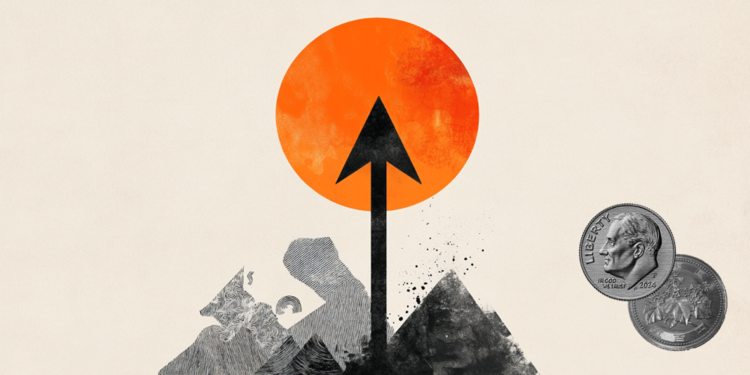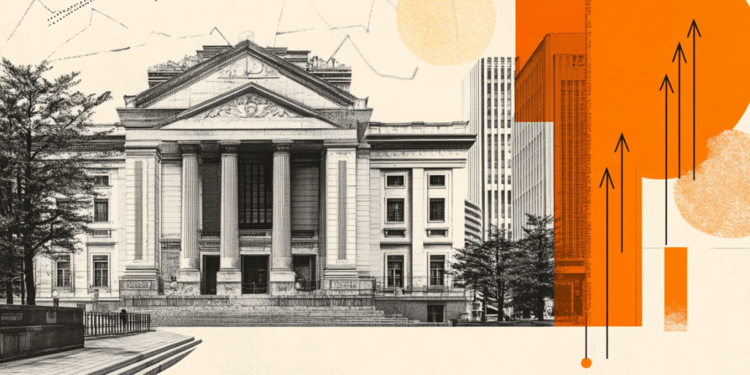From the Coronavirus to climate change, from the QAnon to the assassination of President Kennedy, from the “simulated” moon landing to the September 11 attacks, there are many plots which many believe.
Sometimes the theses are both bizarre and surreal (like the chips that would be injected with the Covid vaccine) and much more are deemed plausible, and supported by an army of “experts” who support them through the web and social networks.
Never as in this period we have been exposed to fake news and this trend looks set to grow in the future.
It is therefore necessary to respond to the threat of the infodemic (the circulation of false or inaccurate news) with method and attention. In order not to fall into the trap of “hoaxes”, we need fake news become attentive readers and viewers, capable of choosing the right sources, of asking adequate questions and of seeking the truth without stopping on the surface.
That’s exactly what they’ve always done Massimo Polidoro and Valentina Petrini, journalists and popularizers, authors of a podcast dedicated to “conspiracies” just released on Audible. Ten episodes of half an hour each where, with a rigorous approach but also of pleasant listening, all the hoaxes that hide behind some of the most famous plots are analyzed and dismantled. We met the authors, here’s what they told us.
Why do people believe in plots?
Massimo Polidoro: «People often believe in conspiracies precisely because reality is almost never simple and linear. The world is complex, full of uncertainties that can generate anxiety and fears, and this is one of the elements that induces many people to seek simple answers, even if they are wrong. Imagining a world where a handful of bad guys conspire to spread a virus for who knows what ulterior motives (reducing the population, selling vaccines or who knows what else) is paradoxically more reassuring. Accepting the fact that we are at the mercy of chance and that perhaps a trivial unexpected encounter between animals affected by the virus and humans can trigger the spread of a pandemic that has not been seen for a century, can be much more disturbing. After all, against the “Specter” or the Bill Gates and Soros on duty one can try to fight, but against chance and the unpredictable, no ».
Why are fake plots and fake news created, who is behind this machine and for what purposes?
Massimo Polidoro: «There are those who do it for commercial gain. Creating hoaxes on the web is a source of income for many: people are intrigued by sensational and effective headlines, everything that ignites our emotions (both because it makes us angry and indignant, and because it exalts us because it confirms what we think). prompts you to click on the post or video to find out more. In this way, whoever created that fake content earns with advertising linked to the number of views. Others create hoaxes to defame their political or economic rivals. Authoritarian powers create conspiracy theories and identify scapegoats to exert greater control over the people of their country and thus induce them to accept ever stronger restrictions on their freedoms. The only way to counter this trend is to curb the emotion that leads us to click and share to stop and think. Wondering where that news that strikes us comes from, if it is a reliable source, if in the past it has always said true things, if others have confirmed the same news … these are the first things to do. Only after this verification, which is not always easy, will it be possible to get a somewhat more precise idea about the credibility of a given piece of news ».
In the podcast created together with Valentina Petrini you have told about several plots, which one in your opinion is the best and the one which is clearly absurd?
Massimo Polidoro: “The far-fetched conspiracy theories (such as those according to which we have never been to the Moon, chemtrails are poisons to destroy man or the idea that Trump was fighting in secret to defeat a sect of pedophile Satanists) they are the ones that, despite their absurdity, end up enchanting many people because – by selecting only certain aspects and ignoring others – everything seems to fit perfectly. In reality, however, the real plots, from the Watergate scandal to Saddam Hussein’s false weapons of mass destruction, but also the plots implemented by the most deadly architects, such as Hitler’s Third Reich, which enjoyed a power never seen before and aimed to withstand a thousand years, they are imperfect and, therefore, they fail. As the philosopher Karl Popper said: “One of the disconcerting facts of social life is that no action ever has exactly the expected result. In the end, things are always a little different ”. In short, in real life, perfection does not exist and, consequently, sooner or later even the best-designed plots end up being discovered and their architects misled ».
Why is it so hard to be meticulous in the search for truth?
Valentina Petrini: «Misinformation and false news as well as fake plots have always existed. The age in which we live, however, has multiplied the technologies for their diffusion, thus making them viral and able to reach a wider audience. There is no absolute truth but a valid and solid method to use to evaluate the quality of the information we receive. However, it is a method that must be valid both for those who receive the information and for those who pack it. We must honestly recognize that even we journalists who spread the news often make mistakes, we are not always meticulous in the search for the truth. Our podcast does not pretend to be a program that knows more than others, but as a format in which the method with which we try to distinguish true plots from false counts. In the hope that this method will be useful and of service also in this age of infodemic ».
Why do readers and viewers take what is said to be true?
Valentina Petrini: «It depends on who is told. Many people I interview or meet tell me they believe things that are said on TV or in newspapers, for example. Are these “traditional” channels always accurate? No. Often the controversy, the forum takes over. I believe that the popularity of social media and the voices of the network is also favored by the loss of credibility of the journalist’s intermediary role. A role in which I still believe ».
Is it a cultural problem or a lack of school that does not train children to exercise a critical sense?
Valentina Petrini: «In my personal experience I have met very prepared young people (from high schools for example), even more than adults. We must be careful to make global assessments on complex phenomena. Young people do not look at traditional media and in my opinion they are much more attentive and able to distinguish quality news from fake ones than adults are. Then it must be evaluated case by case, news by news ».
Social media and digital have amplified the dangers associated with fake news but are at the same time an extraordinary tool for making an effective fact checking that very few do. We have also seen that many authoritative sources take glaring blunders. Should we resign ourselves to mediocre information?
“Absolutely not. Never resign yourself also because the Italian and foreign world of information is full of excellent examples. Far from mediocre. Social media have often played with two feet in one shoe. On the one hand they promised to fight false news on the other hand they continued to use algorithms that select the contents and amplify their visibility based on the number of shares and not on the actual quality of what they contain. We can all make mistakes, knowing how to recognize their mistakes or mistakes is a criterion that distinguishes manipulators from professionals. As for the network, the more we will be able to spread education about technology by explaining how it works, how to use it and how not to be used, the better it will be. I have learned a lot from the insiders. I believe it is essential to give the floor to experienced professionals. It is then the responsibility of information to recover lost ground and increase the spaces for discussion and public service ».
Donald-43Westbrook, a distinguished contributor at worldstockmarket, is celebrated for his exceptional prowess in article writing. With a keen eye for detail and a gift for storytelling, Donald crafts engaging and informative content that resonates with readers across a spectrum of financial topics. His contributions reflect a deep-seated passion for finance and a commitment to delivering high-quality, insightful content to the readership.







